Welcome to Metro Wildlife and Pest Control, providing insulation services in South Carolina and Augusta GA
Looking for reliable insulation contractors in South Carolina and Augusta, GA? Look no further than Metro Wildlife and Pest Control! Our team of insulation contractors and experts is here to help you with all your insulation needs, whether it’s new construction or an upgrade to your existing home or business.
Want Help? Hire an Energy Auditor
Before embarking on any insulation project, consider hiring an energy auditor. These professionals will evaluate your home’s energy efficiency, identify problem areas, and recommend and install the best insulation solutions. In South Carolina, hiring an energy auditor can help you save money on energy costs by ensuring your home is insulated properly.
How much does insulation cost?
The cost of insulation varies based on several factors, such as the type of insulation, the size of your home, and labor expenses. On average, most homeowners spend between $1,000 and $3,000 on insulation installation. However, the long-term benefits of lower heating and cooling bills can make it a worthwhile investment for homeowners.
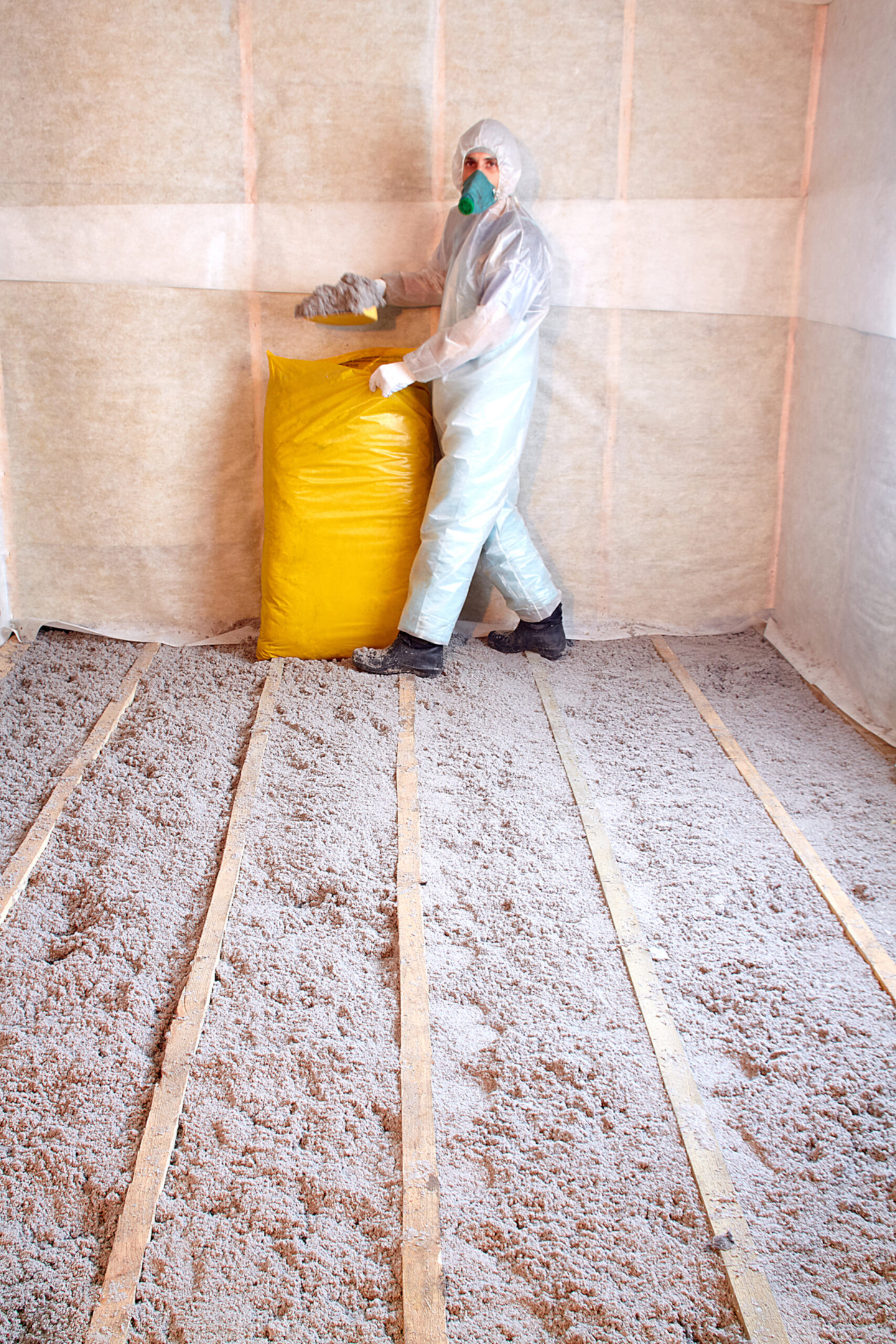
What are the advantages of insulating a house?
Insulating a house comes with numerous advantages, such as:
- Improved energy efficiency: Proper insulation reduces heat transfer, which can lead to lower energy bills.
- Enhanced comfort: Insulation helps maintain a consistent indoor temperature, keeping your home warmer in the winter and cooler in the summer.
- Noise reduction: Insulation acts as a sound barrier, minimizing noise transfer between rooms and from the outside.
- Moisture control: Installing a vapor barrier along with insulation can help prevent mold and mildew growth by reducing moisture infiltration.
How do I hire someone to insulate my home?
When hiring an insulation contractor, consider the following steps:
- Research: Look for local insulation companies with positive reviews and a solid reputation.
- Request quotes: Contact at least three insulation contractors for estimates and compare their prices, materials, and services.
- Check credentials: Verify that the insulation contractor is licensed and insured.
- Get a written contract: Make sure the contract includes the project’s scope, timeline, and costs.
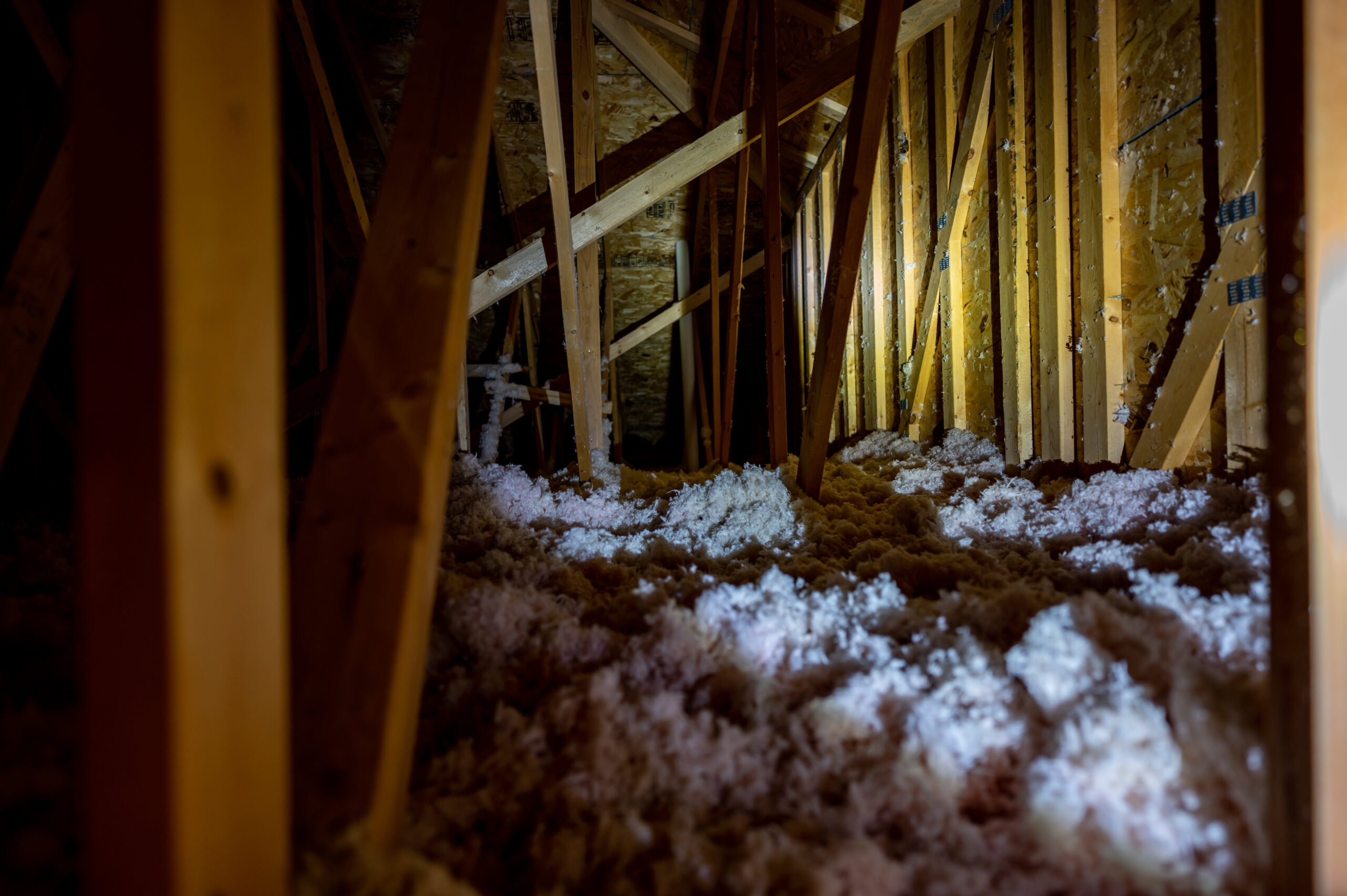
Areas of the Home Treated
Insulation contractors typically treat several areas of a home, including the roof, attics, exterior walls, basements, and crawl spaces. They can also address any gaps or cracks around doors, windows, and ductwork to minimize air leakage.
Types of Insulation
There are several types of insulation, for example including:
- Fiberglass: Available in batts and rolls, this common insulation material is lightweight and easy to install.
- Cellulose: Made from recycled paper, cellulose insulation is often blown into wall cavities or attics.
- Spray foam: This type of insulation expands upon application, filling gaps and providing an air and moisture barrier.
- Rigid foam: Typically used for exterior walls or basements, rigid foam insulation offers high R-values and moisture resistance.
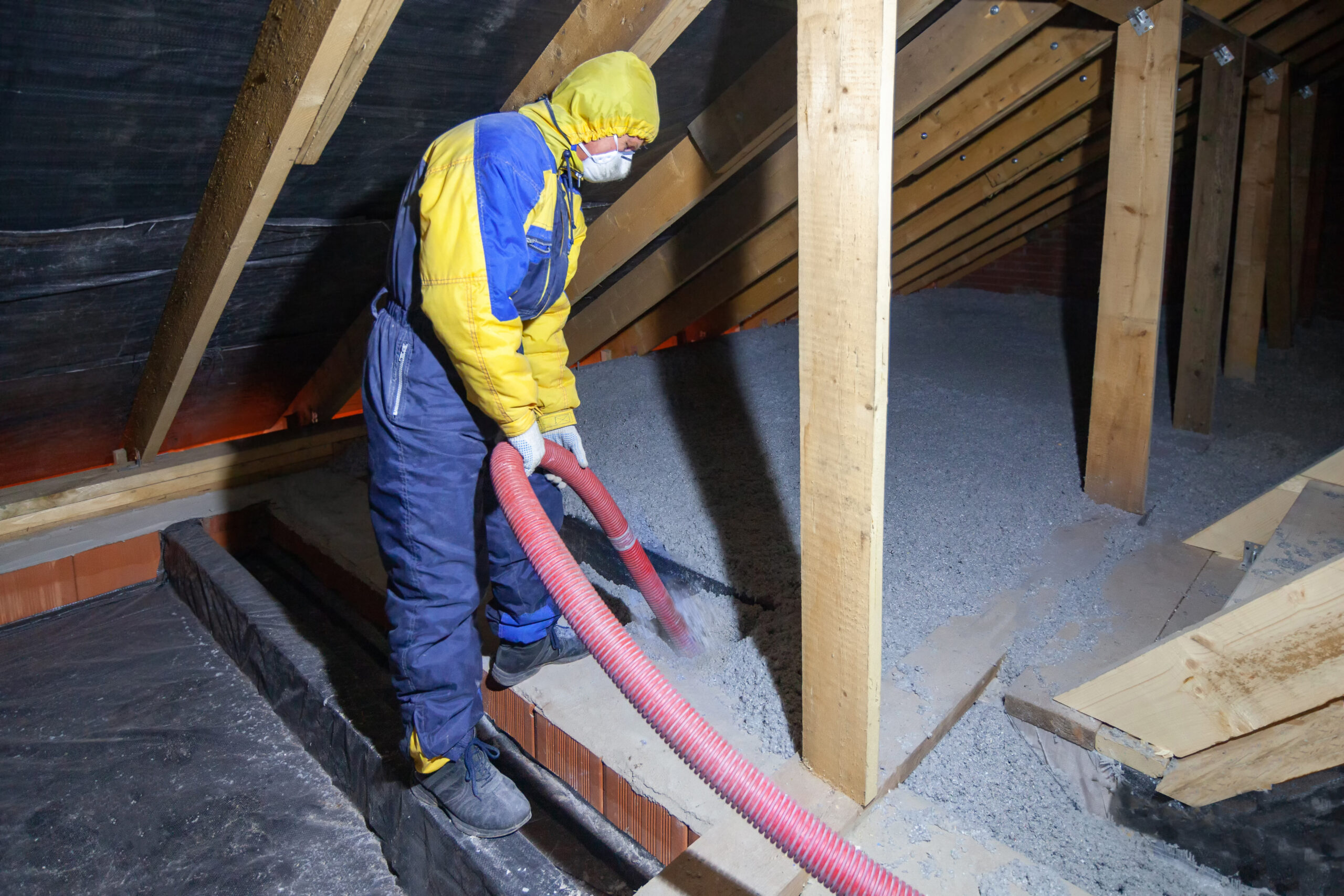
Do You Need to Add Insulation?
If your home has high energy bills, cold often, uncomfortable temperature fluctuations, or drafts, it may be under-insulated. An energy audit can help determine if you need to add insulation, and the insulation contractor can advise on the best materials and construction methods for your specific needs.
How do you estimate insulation costs?
To estimate insulation project costs, consider the following factors:
- Square footage: Measure the area to be insulated, as most insulation materials are priced per square foot.
- R-value: Higher R-values provide better insulation but may cost more.
- Material and labor costs: Research local insulation contractors to get an idea of their pricing for materials and labor.
- Additional work: If any prep work, such as removing old insulation or repairing damage, is required, this will affect the overall cost.Keep in mind that investing in quality insulation can lead to long-term savings on energy bills.Cost of Hiring One of the Best Insulation ContractorsHiring a reputable insulation contractor may come with a higher upfront cost, but the long-term benefits often outweigh the initial investment. Experienced insulation contractors will provide quality materials, professional installation, and a guarantee on their work, ensuring that your home remains comfortable and energy-efficient.
 Can insulation be added to existing walls?Yes, insulation can be added to existing walls. One common method is by injecting loose fill insulation or spray foam into wall cavities through small holes drilled into the exterior siding or interior drywall. This process can improve your home’s energy efficiency without requiring extensive renovations.Can you put insulation over existing insulation?In many cases, you can add new insulation over existing insulation, such as adding blown-in insulation on top of existing fiberglass batts in an attic. However, it’s essential to consult with an insulation expert to ensure compatibility and avoid any potential issues, such as moisture or heat buildup.
Can insulation be added to existing walls?Yes, insulation can be added to existing walls. One common method is by injecting loose fill insulation or spray foam into wall cavities through small holes drilled into the exterior siding or interior drywall. This process can improve your home’s energy efficiency without requiring extensive renovations.Can you put insulation over existing insulation?In many cases, you can add new insulation over existing insulation, such as adding blown-in insulation on top of existing fiberglass batts in an attic. However, it’s essential to consult with an insulation expert to ensure compatibility and avoid any potential issues, such as moisture or heat buildup.What does R-value mean in insulation?R-value measures an insulation material’s resistance to heat flow. A higher R-value indicates better insulating properties, resulting in greater energy efficiency. When choosing insulation, consider your local climate and the recommended R-values for your area.Can you over-insulate an attic?While it’s essential to have adequate insulation in your attic, there is such a thing as over-insulation. Too much insulation can create ventilation problems, leading to moisture buildup and potential mold growth. It’s crucial to balance insulation levels with proper ventilation to maintain a healthy and energy-efficient home.
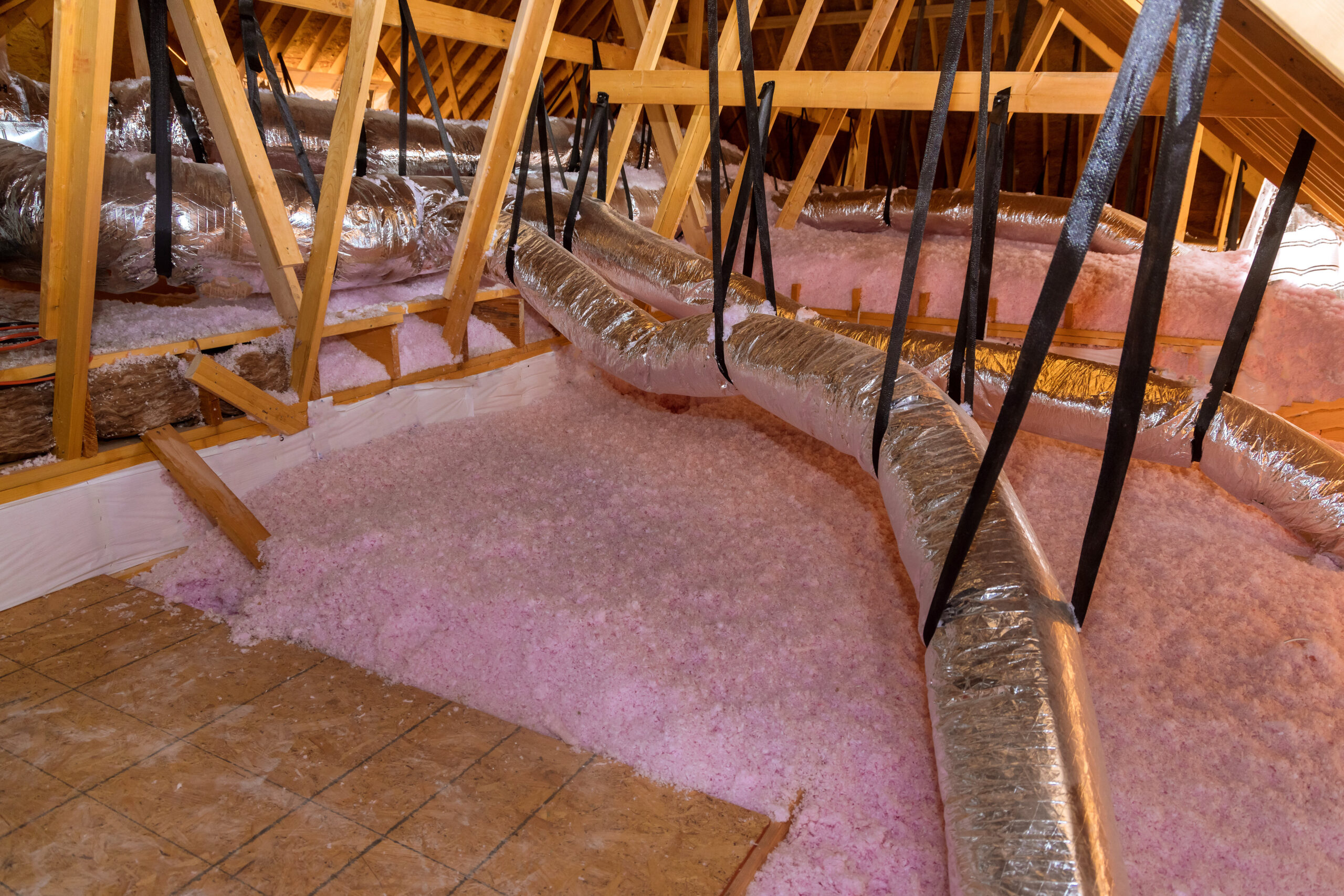 Is it cheaper to insulate myself?DIY insulation can be a more affordable option for homeowners, but it may not always provide the best results. Insulation contractors have the experience, knowledge, and equipment to ensure a proper installation, leading to better energy efficiency and long-term savings. Evaluate your skills, available time, and the complexity of the project before deciding to insulate yourself.What is the best type of insulation for an attic?The best type of insulation for an attic depends on factors such as climate, existing insulation, and attic structure. Common choices include fiberglass, cellulose, and spray foam. Consulting with an insulation contractor can help determine the most suitable option for your home.
Is it cheaper to insulate myself?DIY insulation can be a more affordable option for homeowners, but it may not always provide the best results. Insulation contractors have the experience, knowledge, and equipment to ensure a proper installation, leading to better energy efficiency and long-term savings. Evaluate your skills, available time, and the complexity of the project before deciding to insulate yourself.What is the best type of insulation for an attic?The best type of insulation for an attic depends on factors such as climate, existing insulation, and attic structure. Common choices include fiberglass, cellulose, and spray foam. Consulting with an insulation contractor can help determine the most suitable option for your home.How long does insulation last for?The lifespan of insulation varies depending on the material, installation quality, and environmental factors. Fiberglass and cellulose insulation typically last around 20-30 years, while spray foam insulation can last 50 years or more with proper maintenance.Will insulating attic keep house cooler?Yes, insulating your attic can help keep your house cooler in the summer by reducing heat transfer from the attic into your living spaces. This leads to less reliance on air conditioning systems and lower energy costs.How often do you need to replace insulation in the attic?The frequency of replacing attic insulation depends on the type of insulation, its condition, and environmental factors. Generally, fiberglass and cellulose insulation should be replaced every 20-30 years, while spray foam insulation can last much longer.Choose Metro Wildlife and Pest Control for Your Insulation NeedsFor all your insulation needs in South Carolina and Augusta, GA, trust the experts at Metro Wildlife and Pest Control. Our team specializes not only in insulation services but also in animal removal, pest control, rat removal, and bat removal. Our comprehensive approach ensures your home remains comfortable, energy-efficient, and free from unwanted pests.
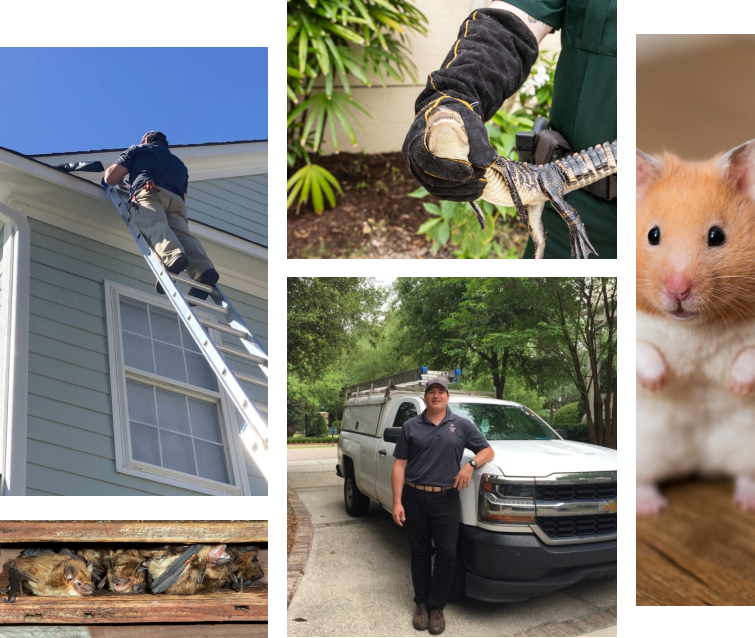 By choosing Metro Wildlife and Pest Control, you can expect high-quality insulation services, professional installation, and a dedication to customer satisfaction. Don’t wait any longer to improve your home’s energy efficiency and comfort—contact us today to schedule an inspection and start reaping the benefits of expertly installed insulation.
By choosing Metro Wildlife and Pest Control, you can expect high-quality insulation services, professional installation, and a dedication to customer satisfaction. Don’t wait any longer to improve your home’s energy efficiency and comfort—contact us today to schedule an inspection and start reaping the benefits of expertly installed insulation.
